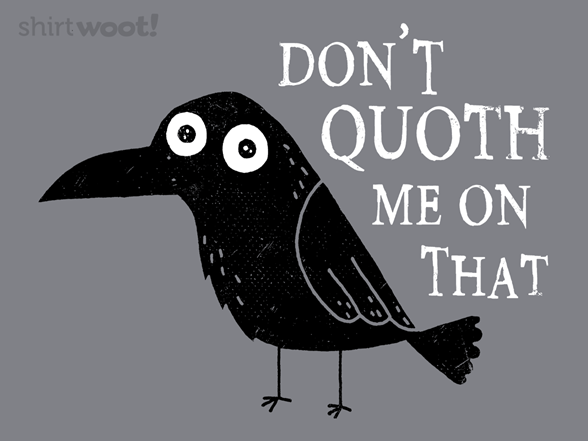
quoth [kwohth] ExamplesWord Origin verb Archaic.
- said (used with nouns, and with first- and third-person pronouns, and always placed before the subject): Quoth the raven, “Nevermore.”
Also quo. Origin of quoth 1150–1200; preterit of quethe (otherwise obsolete), Middle English quethen, Old English cwethan to say. Cf. bequeath Examples from the Web for quoth Historical Examples of quoth
“The more reason that I should strive to mend him,” quoth Alleyne.
Arthur Conan Doyle
“These are the Beating Friars, otherwise called the Flagellants,” quoth he.
Arthur Conan Doyle
“I doubt it not, mon ami,” quoth the archer, going back to his tankard.
Arthur Conan Doyle
“Streams may spring from one source, and yet some be clear and some be foul,” quoth she quickly.
Arthur Conan Doyle
“There is the smoke from Bazas, on the further side of Garonne,” quoth he.
Arthur Conan Doyle
British Dictionary definitions for quoth quoth verb
- archaic (used with all pronouns except thou and you, and with nouns) another word for said 1 (def. 2)
Word Origin for quoth Old English cwæth, third person singular of cwethan to say; related to Old Frisian quetha to say, Old Saxon, Old High German quethan; see bequeath Word Origin and History for quoth v.
Old English cwæð, third person singular past tense of cweðan “to say, speak; name, call; declare, proclaim” (Middle English quethan), from Proto-Germanic *kwithan (cf. Old Saxon quethan, Old Norse kveða, Old Frisian quetha, Old High German quedan, Gothic qiþan), from PIE root *gwet- “to say, speak” (see bequeath). Cf. also archaic quotha “said he” (1510s) for Old English cwæðe ge “think you?”
 Liberal Dictionary English Dictionary
Liberal Dictionary English Dictionary